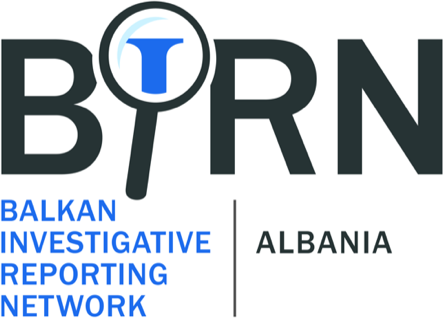Who Controls the Media in Albania?
In the crowded landscape of Albanian media, encompassing broadcast, print, radio, and digital platforms, the prevalent narrative is one of independence and commitment to the highest journalistic standards. Outlets proudly profess their dedication to delivering truthful, balanced, and fact-checked news, ostensibly serving the public interest. However, the reality often diverges from this idealized self-portrayal.
In practice, a discernible political bias permeates many media stories, with facts contorted to align with the political and economic interests of media owners, political leaders, and other influential entities. This undue influence transforms journalists into conduits for state-sponsored, corporate, or political propaganda, eroding the authenticity and impartiality of news delivery.
On the surface media ownership in Albania reveals a facade of diversity, with an apparent mix of businessmen and journalists at the helm. Yet, a closer inspection of the major players, those with the highest audience reach and revenue dominance, unveils a concentration of power within a select few family-owned conglomerates. These entities, extending commercial interests in sectors such as construction, real estate, information technology, lotteries, education, oil trading, hospitality, and more, wield considerable influence over media editorial lines.
Moreover, these conglomerates often operate in sectors subject to robust government regulatory powers, which are then exploited to mold the editorial stance of their media holdings. As a consequence, a climate of undue influence looms large, pressuring journalists towards self-censorship and transforming media outlets into vessels for disseminating propaganda.
Research by the MOM Albania team underscores the extent of political influence, revealing that nearly the entire audience share in broadcast media (98.1%) is controlled by owners with specific political affiliations. This influence extends beyond commercial media to encompass the audiovisual media regulatory body and the public broadcaster, where key figures are often linked to the ruling political party.
Albania's government employs a multifaceted strategy of rewards and punishments to shape media coverage. While certain prominent media outlets receive subsidies and concessions, those critical of the ruling party face fines, inspections, and other punitive measures. Government subsidies and contracts are not only limited to media outlets but also extend to the non-media businesses of owners, further entwining economic interests with editorial decisions.
A glaring example is the Hoxha family, owners of Top Media, which receive funding from the municipality of Tirana and the Ministry of Tourism for TV programs through the Dritan Hoxha Media Foundation. Similarly, the Dulaku family secures government subsidies as ‘strategic investor’ for real estate development projects, while the Ulaj brothers profit from lucrative concessions in the energy and highway construction sectors.
Meanwhile, media outlets critical of the ruling party often endure attacks, ranging from financial penalties to demolitions targeting their properties. For instance, in March 2023, News 24 and RTV Ora, both critical of the government, were slapped with substantial fines by tax authorities.
Governance not only exerts sway over proprietors in the realm of media but also wields significant influence over the creation of news media content. A sophisticated propaganda machinery, funded by public resources, generates pre-packaged content disseminated through TV stations and online media. In a move consolidating control, the government established the Media and Information Agency in September 2021, centralizing oversight of all government media offices. The agency has been compared by the International Press Institute to a propaganda ministry.
In the latest analysis conducted by the Medialook Center in October 2023, a Tirana based media watchdog, an alarming surge in the dissemination of government propaganda through media outlets has been unveiled over the last half-decade. The study's findings illuminate a concerning trend wherein a substantial segment of online media is amplifying narratives that essentially mirror official pronouncements from the influential Mayor of Tirana.
Within the purview of the study encompassing 46 media outlets, a notable revelation emerges: 10 outlets, perceived as leaning heavily towards a pro-government stance, news stories exhibited an extraordinary degree of congruence with press releases emanating from the Tirana Municipality. The degree of similarity, a staggering 93-99.5%, underscores a concerning alignment between the media narrative and official communications, raising critical questions about journalistic independence and the veracity of news dissemination in this landscape.
The ruling Socialist Party's influence extends beyond traditional media to social media platforms, where the Prime Minister has his own Facebook multimedia channel, called ERTV, which stands for Edi Rama TV, the only media allowed to broadcast from government events.
A community application built by the ruling Socialist Party, called akt1visti, is used to amplify social media posts from government officials, by allegedly pressuring the public administration to engage with propaganda content on social media platforms. The application gives points to registered users every time they share, like or comment on a listed piece of Socialist Party/government propaganda on social media. The points are accumulated to give a specific score for each user. This score allows app managers to monitor the activity of users, many of whom are public employees.
In navigating this intricate web of media ownership concentration, political affiliations, and government influence, Albania faces an uphill battle in preserving journalistic integrity amidst a complex interplay of interests.
Sources
Medialook, Bashkia e Tiranës “dikton” lajmet propagandistike në media, problem transparenca e llogaridhënia [The Municipality of Tirana "dictates" propagandistic news in the media, transparency and accountability issues arise], (2023).
Accessed on 11.11.2023
Mapping Media Freedom, Albanian tax authorities fine two news media outlets with heavy fines, (2022),
Accessed on 11.11.2023
Reporter.al, ‘Akt1visti’ lë në baltë Erion Veliajn në betejën virtuale për Tiranën [‘Akt1visti’ fails Erion Veliaj in the virtual campaign for Tirana], (2023).
Accessed on 11.11.2023
Media Freedom Rapid Response, Albanian ‘Ministry of Propaganda’: Where we are today? (2022),
Accessed on 21.11.2023


